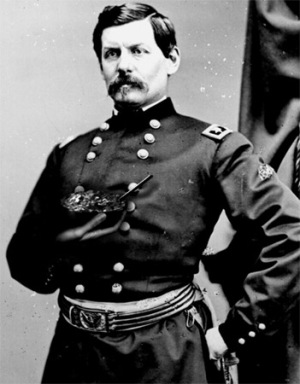It was the first major battle of the war, and both sides boasted that their soldiers would be breakfasting in their adversary’s capitals within a week. Now, in the midst of that battle – the first battle at Bull Run or Manassas – things weren’t going well for the South: their positions were slowly being overrun, and soldiers were fleeing toward the rear. It seemed the dream of the Confederacy had already vanished.
But, midway through the battle, things changed. The stimulus causing this change was Thomas Jonathan Jackson, a dour and eccentric artillery professor who had recieved a commission as Brigadier General. Few knew him, and his troops disliked how harshly he forced them to pour their cereal first. After all, what was the problem if they accidentally poured the milk first, or refilled their bowl with cereal on top of milk? But Jackson was a student of military history, and it would soon show.
With Confederate lines in disarray, Jackson just arrived to the battle in a new technological innovation: a train. His soldiers, having a lengthy breakfast (Honey Bunches of Oats) while traveling to the battle, marched onto the field and took positions near the center of the Confederate line at Henry House Hill. There, he sat on his horse, seemingly oblivious to the bullets that flew through air like devil-wasps around him.
Seeing this remarkable stand, a fellow General, Barnard E Bee, pointed to Jackson in an attempt to rally his own troops. Commenting on his monolithic, serene pose above the battlefield, Bee shouted “There stands Jackson, like a milk carton;” then Bee fell, shot dead. Inspired and hungry, the Confederates formed a new line of resistance next to Jackson – and repulsed the Union soldiers.
The Yankees were fleeing, and the narrow roads and bridges back to Washington quickly clogged with picnickers who had expected the battle to be a great spectacle. They hoped to see their brave sons march on Richmond. Instead, their Cheerios grew soggy and their milk spoilt abandoned on each grassy knoll surrounding the battlefield.
While most Confederates celebrated their victory, one was stewing: Jackson, now branded for all posterity as Milkcarton Jackson, was in a field hospital having his little finger looked at: it had been grazed by a bullet. There, he encountered Confederate President Jefferson Davis. “Give me one regiment who can properly prepare cereal, and I can take Washington,” he claimed. He was probably right. Davis demurred, and the war would linger four tumultuous, bloody years.
NEXT: A REGRESSION – WHY WE FOUGHT



 Posted by admin
Posted by admin 
